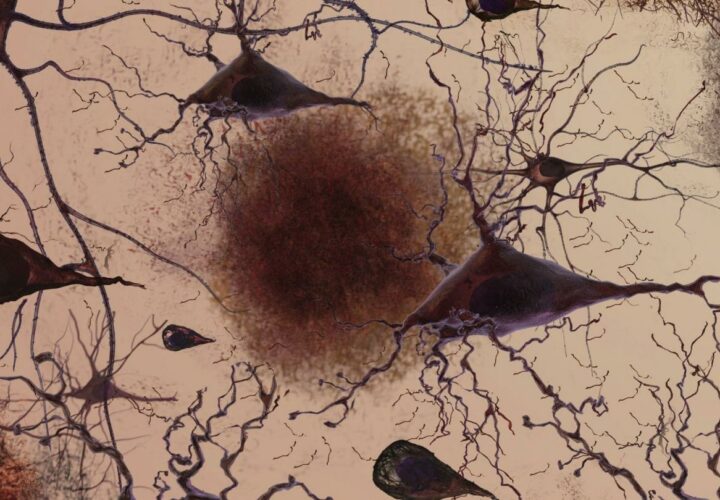UPDATE: 3 March 2024, 8:19 P.M. ET. In February 2024, Biogen took Aduhelm off the market, citing financial concerns. Although the drug did receive accelerated, conditional FDA approval for the treatment of early Alzheimer’s disease in 2021, it is no longer available to new patients. The company announced it would sunset trials in May 2024 and cease supplying the drug to current patients in November 2024.
In an unexpected twist, the advisory committee that convened today on the experimental Alzheimer’s treatment aducanumab overwhelmingly said that drugmaker Biogen has failed to prove the drug is effective.
In what could be a significant setback in the development of a treatment for Alzheimer’s disease, a federal advisory committee convened by the Food and Drug Administration overwhelmingly said today that drugmaker Biogen has failed to prove that its experimental aducanumab drug is an effective treatment for Alzheimer’s. The committee instead seemed to suggest that the FDA should require Biogen to run another large clinical trial of the drug.
The Peripheral Central Nervous System Drugs Advisory Committee is an 11-member advisory group that includes professors of neurology, biostatistics and medicine, as well as patient and industry representatives. At the end of a six-hour meeting, the committee rejected the evidence, presented by Biogen and the FDA staff, that aducanumab slows cognitive decline in people who participated in clinical trials.
If ultimately approved, aducanumab would become the first drug proven to slow the cognitive decline associated with Alzheimer’s. In announcing its decision to move forward over the summer, the FDA said that it would grant priority review to the Biogen application and added that it would try to decide on the application before the March target date.
From the start of Friday’s meeting, however, committee members appeared deeply skeptical about the evidence, rejecting strong recommendations from Biogen, FDA staff, patients and patient advocates.
In an opening presentation, Samantha Budd-Haberlein, a Biogen senior vice president, urged a positive vote. “Considering the tremendous unmet need and the devastating nature of this disease on patients and their families, we can conclude that aducanumab is an important new option for patients with Alzheimer’s disease,” she said.
“Aducanumab is different from other beta targeting drug candidates,” she continued. “It is a stepping stone for our next advances.”
FDA staff members who addressed the committee also said that evidence supporting aducanumab’s approval “appears strong.”
Dr. Billy Dunn, director of the FDA Office of Neuroscience, told the committee that “taken on its face, it was apparent that study results represented exceptionally persuasive evidence of effectiveness.”
During a public comment section of the meeting, several people with Alzheimer’s and their families also urged the committee to recommend approval of aducanumab.
Jeff Borghoff, who was diagnosed with early onset Alzheimer’s five years ago, told the committee that he and his family understand that aducanumab is not a cure for Alzheimer’s. Borghoff has been a long-time participant in a phase three aducanumab trial.
“We understand that aducanumab is meant to slow the progression and decline of neurological functions and that is our hope,” he said. “My wife and family often say that we can live with the damage that has already been done to my brain from Alzheimer’s as long as I can live longer.”
George Vradenburg, chairman of UsAgainstAlzheimer’s, a not-for-profit organization in Washington, urged the committee to recommend approval of aducanumab.
“To get to the best-in-class drug, a cure, we must have a first-in-class drug as we have learned with so many other challenging diseases,” he said. “The signal you send today will have a ripple effect far beyond this one drug. The signal you send today can stop the path to a cure for years or it can sound the starting gun on innovation.”
Of the 16 public comment speakers, only two urged the committee to reject the evidence as presented by Biogen and the FDA.
Michael Carome, director of Public Citizen’s Health Research Group, said his organization strongly opposes FDA approval of aducanumab because, he said, Biogen has failed to provide “substantial evidence of efficacy.”
As an alternative, he said, the FDA should demand another large premarket randomized placebo-controlled trial of aducanumab. “FDA approval of the drug, absent [of] substantial evidence of efficacy, would further damage the agency’s already diminished credibility,” Carome said.
In contrast, the Alzheimer’s Association cautioned against another study. “Requiring completion of an additional phase three trial would deny broad access [for] up to four years while it is completed,” said Joanne Pike, the Association’s chief strategy officer. “A four-year delay is too long to wait for millions of Americans facing a progressive, fatal disease.”
Committee members, however, rejected evidence of the drug’s efficacy. One question presented to the committee was whether Biogen presented “strong evidence of a pharmacodynamic effect on Alzheimer’s disease pathophysiology.” Five members of the committee voted yes, saying the drug does impact the amyloid proteins that some believe are a cause of neurodegeneration. A majority of six, however, said the evidence was unconvincing.
“We understand that aducanumab is meant
to slow the progression and decline of
neurological functions and that is our hope.
My wife and family often say that we
can live with the damage that has already
been done to my brain from Alzheimer’s
as long as I can live longer.”
In its final vote, the committee was asked if Biogen has presented “primary evidence of effectiveness of aducanumab for the treatment of Alzheimer’s disease?” Overwhelmingly members said no with a vote of 0 yes, 10 no, and 1 uncertain.
The committee’s negative votes represented yet another twist in aducanumab’s convoluted path. Initially introduced in early stage trials in 2016, aducanumab entered its phase three trials with high hopes for success. But in March 2019, Biogen and its partner Eisai Co. stunned the Alzheimer’s community when they abruptly halted the drug’s development after aducanumab failed a “futility analysis.”
The companies then reversed their stance in October 2019, saying that late-arriving data had actually shown improvements for people living with mild cognitive impairment or very early Alzheimer’s.
In December 2019, at a packed conference in San Diego, Biogen said that patients who received aducanumab experienced significant slowing of decline on measures of cognition and functions such as memory, orientation and language and said that it would seek FDA approval to market the drug.





I know that I am not the only one who is saddened and confused about this result.
It truly seems unconscionable that this committee would reject what seems to be persuasive arguments and data supporting effectiveness of this drug. Is this a case of “academics” getting in the way of progress?